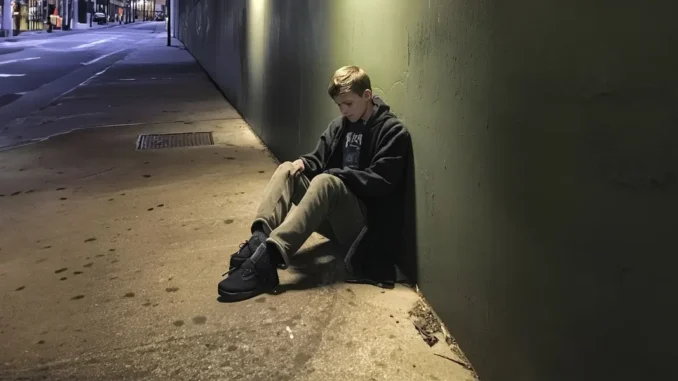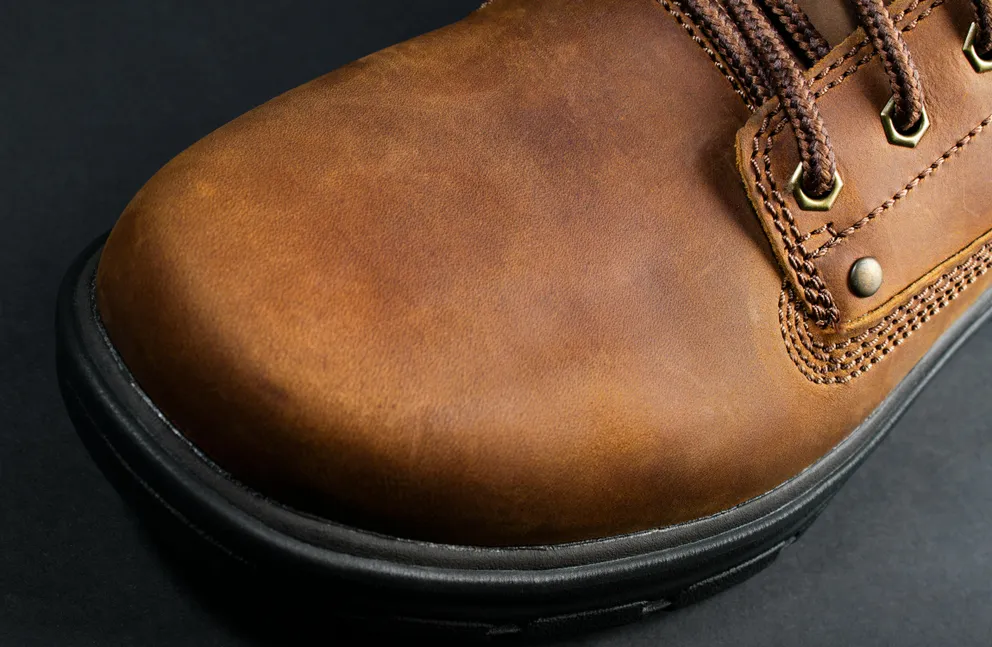
14-year-old Martin sat in the underpass, his shoe-shining kit spread out before him. His stomach growled, reminding him he hadn’t eaten since the small breakfast of bread. He looked up at the bustling crowds, hoping for a customer.
“Just a few today, please,” he whispered. His family depended on him—his mother was paralyzed, and his father had died years ago in a car accident. At just 11, Martin had taken on the role of provider for his family, working as a shoe-shiner.
By afternoon, the crowd had thinned, and Martin felt the weight of hunger pressing harder. Then, just as he reached for an orange from his bag, a man with expensive-looking shoes approached.
“Hurry up, kid. Clean my shoes. I’m in a rush,” the man barked.
A brown leather shoe | Source: Pexels
Martin’s heart leaped. This could be the break he needed. He quickly set aside his orange and started working. But the man’s impatience grew.
“Why’s it taking so long?” he complained. “I wasn’t shining shoes at your age. I was already making more than my father.”
The words hit Martin hard. His father had died in an accident three years ago. His mother had suffered a stroke soon after, leaving her paralyzed. The memory of that night was still fresh, the pain of losing both his father and a part of his mother was still raw. But Martin focused on the shoes in front of him.
“That’s not a good shine!” the man scoffed, examining his shoes. “My dog could do better with his tongue!”
Martin’s cheeks burned with shame. “I’m sorry, sir. I can try again,” he stammered.
The man was having none of it. “Forget it,” he snapped, pulling out his phone. “Reschedule the meeting to 4. I’ll be late, thanks to this incompetent brat.”
“Please, sir. I need the money,” Martin called after him.
But the man, ignoring him, climbed into his car and sped off.
As the car disappeared into the distance, Martin collapsed on the sidewalk, tears streaming down his face. “I’m trying, Dad. I’m really trying,” he whispered.
The next morning, Martin returned to his spot, determined to make a living. Suddenly, a commotion broke out nearby. “Help! Someone help!” a woman cried.
Martin rushed to the source of the noise. To his shock, the man from the day before—Sylvester—was in a car, choking on an apple. Without hesitation, Martin grabbed a rock, smashed the window, and pulled Sylvester out.
“Stand back!” he shouted, performing the Heimlich maneuver. After a few sharp blows, a chunk of apple flew from Sylvester’s mouth, and he gasped for air.
Sylvester looked up at Martin, wide-eyed. “You… saved me,” he wheezed.
Martin helped him to his feet. “Are you okay, sir?”
Sylvester nodded. “I can’t believe it. After how I treated you yesterday… Why did you help me?”
“It was the right thing to do,” Martin replied.
Sylvester, tears in his eyes, apologized. “I was horrible to you. Please, let me make it up to you. Anything! Name your price!”
Martin thought for a moment. “Just the $7 from yesterday. That’s all I want.”
Sylvester, astonished, tried to offer more. “I could give you so much more. A new start. A better life…”
But Martin shook his head. “I just need to take care of my family.”
Reluctantly, Sylvester handed him the $7. Before leaving, he paused. “You’re something special, kid. What’s your name?”
“Martin, sir,” the boy said quietly.
“I won’t forget this, Martin,” Sylvester said before walking away.
That evening, Martin returned home with the hard-earned money, grateful for the small victory. But when he opened his door the next morning, he was met with an unexpected surprise. A bulging white bag sat on his doorstep with a note attached.
He tore open the note, reading aloud, “Thanks is a small word for what you did. I know you’d refuse this. But you deserve a happy childhood. Hope we meet again someday.”
Tears filled his eyes as he looked inside the bag—a large sum of cash. This money could change everything for his family—his mother’s treatment, his sister Josephine’s education, and their future.
Standing there, unsure, Martin thought of his father’s lessons. He grabbed two pieces of paper. One said “REMEMBER,” the other “FORGET.” With his family’s future in his hands, he lit a candle and closed his eyes, asking his father for guidance.
When he opened the paper, the word “REMEMBER” greeted him. With a tearful smile, he knew what he had to do.
“Josephine! We’re going to the doctor today! And maybe… ice cream for all of us,” he called, clutching the note to his chest.
As she cheered, Martin smiled, knowing he had honored his father’s lessons—compassion, dignity, and love—and was now finding a way forward.
